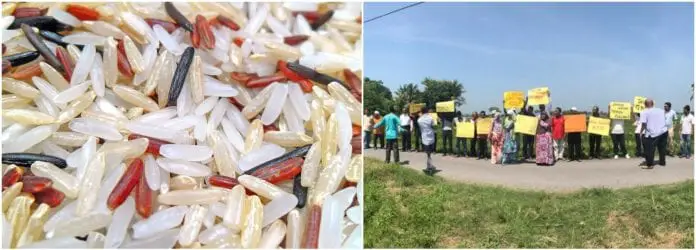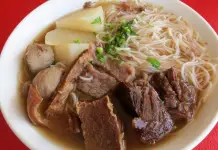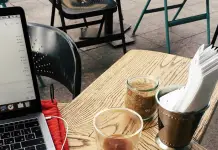Most of us when we associate ‘Genetically Modified’ with food immediately think “DANGER!” in our heads. This is quite a common reaction as the thought of having our food modified can seem like a bad idea. Now, farmers are protesting against the testing of genetically modified rice.
What’s The Reason?
Those of us who have experience trying to growing our own produce in our gardens probably know the same issues. Pests. These pests can range from insects to bugs (yes, they aren’t the same) and harm your plants.

Pests are the biggest obstacles that farmers face when planting rice. One solution is to use pesticides and herbicides to keep them at bay. However, the public does not take well to having poison sprayed on their food which makes sense.
Because of this, the Malaysian Agricultural Research and Development Institute (MARDI) is looking for alternatives. One of their options has led to them creating Malaysia’s first ever genetically modified rice.
What Happened?
Flashback to 2001 and MARDI was experimenting with a common method of direct seeding. This technique uses the method of planting and fertilising directly into undisturbed soil. Only narrow strips of soil are disturbed during the process. Direct seeding helps provide better environmental protection and increase soil productivity.
So MARDI used direct seeding as a way to come up with a rice variety called MR219.This variety of rice can yield better grain, has a shorter maturation period, and is resistant to blast and bacterial leaf diseases.

Unfortunately MR219 started showing some disadvantages despite all the convenience it brought. For example, the rice was increasingly becoming more susceptible to weeds and disease infestation in storage.
And thus MARDI basically wrote down all the problems they faced with rice and decided to come up with the ultimate solution. Which involves genetically modifying rice and that is exactly what they have done. MARDI has genetically modified the MR219 rice variety.
And Now?
Now, MARDI is proposing to grow the modified rice in a test field in Perlis but is facing lots of backlash. Farmers, consumers’ groups, and even NGOs are all protesting against the testing of this rice.

Mohideen Abdul Kaders is the acting president of the Consumer Association of Penang (CAP). Meanwhile, Nurfitri Amir Muhammad is the coordinator of Food Security And Sovereignty Forum, Malaysia.
They have written a letter to Malaysiakini which highlights their concerns about the rice. In the letter they write that the rice is not produced via common hybrid methods. It is actually produced in a laboratory with genetic modification technology.
This rice does not exist in nature which is why it is bringing up real concerns regarding its impact. The number one fear is the risk of genetic contamination in the conventional rice fields in the surrounding area.
Fears Of Genetically Modified Rice
Despite claims that the test field will be in a gated area and within netted structures there are still risks. Mainly, that the foreign genes will escape via insects, birds, other animals, maybe even the machinery or workers.

Considering that this is the trial stage, there is a lot of fear regarding the risks and side effects it could cause. Which is why contaminating the rice fields nearby is quite a huge concern.
Even if the test fields prove to be successful, there is still a lot of concern regarding the possible health risks it brings. Having rice be genetically modified could cause serious side effects in those who consume it. There could be disrupted nutritional, allergenic, or toxin profiles being introduced to consumers.
What Now?
While the concerns over the genetically modified rice is quite serious, it is also important to note that not all genetically modified foods are bad. In fact, some food we import from the U.S such as soybeans and corn. And it is certified as safe to eat.
We just need to be careful in approaching this new territory of rice and ensure that nobody is harmed. More research and information should be released to the public so that there is transparency. Farmers should also be prioritised in this situation.















